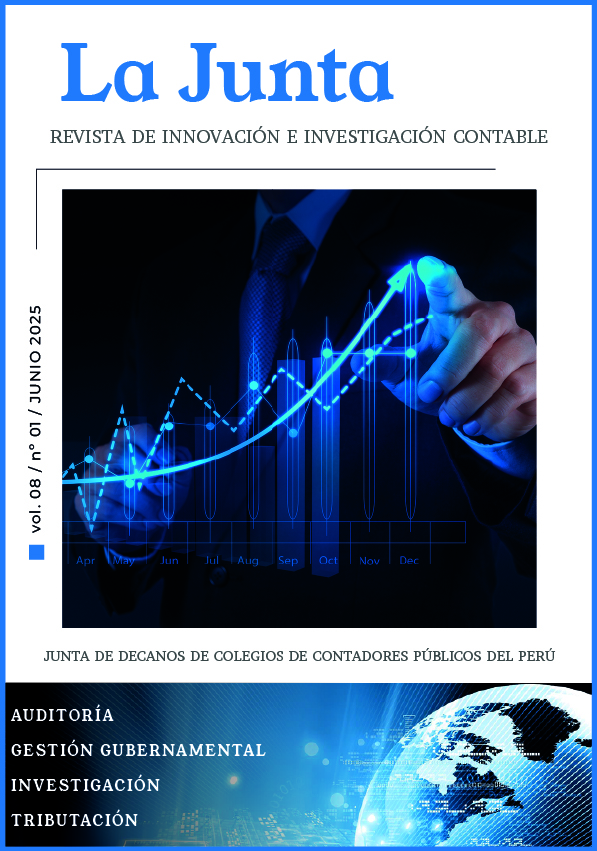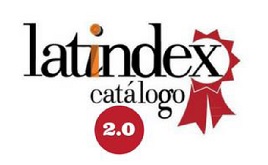Tax auditing and deterrence of tax compliance in the MSE regime: a review of theoretical
DOI:
https://doi.org/10.53641/nac84p13Keywords:
tax audit, tax evasion, tax compliance, small business, tax administrationAbstract
This article makes a critical review of the scientific literature on tax auditing as a deterrent mechanism for tax noncompliance in the MSE regime. Based on a narrative and integrative approach, we analyze national and international studies published between 2020 and 2025 that address the relationship between tax audits and tax behavior. Five key dimensions that mediate audit effectiveness are identified: risk perception, institutional trust, emotional impact, social norms and pedagogical function. The findings show that the deterrent effect of audits does not depend exclusively on coercive control, but also on legitimacy, fairness and taxpayer perception. It is concluded that effective auditing in contexts of high informality requires more humanized, educational and contextually sensitive approaches, aimed at transforming the tax culture based on trust and reciprocity.
Downloads
References
Advani, A., Elming, W., & Shaw, J. (2023). The dynamic effects of Tax Audits. Review of Economics and Statistics, 105(3), 545–561.
Allingham, M. G., & Sandmo, A. (1972). Income tax evasion: a theoretical analysis. Journal of Public Economics, 1(3–4), 323–338.
Alm, J., Burgstaller, L., Domi, A., März, A., & Kasper, M. (2023). Nudges, Boosts, and Sludge: Using New Behavioral Approaches to Improve Tax Compliance. Economies, 11(9).
Alm, J., Kirchler, E., & Muehlbacher, S. (2012). Combining Psychology and Economics in the Analysis of Compliance: From Enforcement to Cooperation. Economic Analysis and Policy, 42(2), 133–151.
Arteaga Mac Kinney, R. (2010). La justicia fiscal en el marco de la teoría de la justicia como equidad de Jhon Rawls. La tributación ¿carga, obligación o donación? Ilemanta, 2(4), 101–115.
Barra, G. M. J., & Ladeira, M. B. (2016). Teorias institucionais aplicadas aos estudos de sistemas agroindustriais no contexto do agronegócio café: uma análise conceitual. REGE - Revista de Gestão, 23(2), 159–171.
Becker, G. S. (1968). Crime and Punishment: An Economic Approach. Journal of Political Economy, 76(2), 169–217.
Boning, W. C., Hendren, N., Sprung-Keyser, B., & Stuart, E. (2025). A Welfare Analysis of Tax Audits Across the Income Distribution. The Quarterly Journal of Economics, 140(1), 63–112.
Castañeda Rodríguez, V. (2014). La moral tributaria en América Latina y la corrupción como uno de sus determinantes. Revista Mexicana de Ciencias Políticas y Sociales, 60(224), 103–132.
CEPAL. (2020). América Latina y el Caribe representa el 8% del PIB global y de la población mundial, según nuevo informe multilateral.
Christiansen, T. G. (2024). Dynamic effects of tax audits and the role of intentions. Journal of Public Economics, 234.
Cialdini, R. B. (2001). Influence: Science and practice (4th edition). Allyn & Bacon.
Coaquira Taboada, J. N., Chaupis Pajuelo, D. A., & Burgos Zavaleta, V. F. J. (2022). Ingresos tributarios provenientes del sector minero y su relación con la recuperación económica del Perú. Quipukamayoc, 30(63), 59–68.
Elviani, S., Simbolon, R., Lubis, F. K., Rangkuti, L. E., & Nasution, I. (2024). Indonesian Governors’ Gender, Age, Education Level, Educational Background, Tenure and Their Tendency of Conducting Fraud. Qubahan Academic Journal, 4(2), 367–381.
Feld, L. P., & Frey, B. S. (2007). Tax Compliance as the Result of a Psychological Tax Contract: The Role of Incentives and Responsive Regulation. Law & Policy, 29(1), 102–120.
Hamadeh, A. H., Nouraldeen, R. M., Mahboub, R. M., & Hashem, M. S. (2025). Auditors’ Intention to Use Blockchain Technology and TAM3: The Moderating Role of Age. Administrative Sciences, 15(2).
Hernández, R., Fernández, C. & Baptista, P. (2018). Metodología de la investigación.
Huanca-Arohuanca, J. W., & Barria-Asenjo, N. A. (2022). Replanteando el concepto de justicia como equidad y velo de ignorancia en John Rawls desde el pluralismo ético. Desde El Sur, 14(3), 1–17.
Huarcaya-Taype, R., Lozano-Núñez, C., Lozano-Núñez, P., Yupanqui-Villanueva, W. & Ramos
Serrano, R. (2024). Correlación entre contingencias fiscales y obligaciones tributarias de las empresas multiservicios del Distrito de Huancavelica-Perú. Impulso, Revista de Administración, 4(7), 21–32.
Inegbedion, H., & Okoye-uzu, C.-S. (2024). Tax audit on tax revenue of SMEs in Nigeria. Humanities and Social Sciences Communications, 11(1), 1603.
Jin, P., Li, G., & Xiong, W. (2022). Deterrence or conformity? —An analysis of digital economy taxpayer compliance behavior based on prospect theory. Frontiers in Psychology, 13.
Kahneman, D., & Tversky, A. (1979). Prospect Theory: An Analysis of Decision under Risk. Econometrica, 47(2), 263.
Kasper, M., & Rablen, M. D. (2023). Tax compliance after an audit: Higher or lower? Journal of Economic Behavior and Organization, 207, 157–171.
Kirchler, E., Hoelzl, E., & Wahl, I. (2008). Enforced versus voluntary tax compliance: The “slippery slope” framework. Journal of Economic Psychology, 29(2), 210–225.
Kotsogiannis, C., Salvadori, L., Karangwa, J., & Mukamana, T. (2024). Do tax audits have a dynamic impact? Evidence from corporate income tax administrative data. Journal of Development Economics, 170.
Lancee, B., Rossel, L., & Kasper, M. (2023). When the agency wants too much: Experimental evidence on unfair audits and tax compliance. Journal of Economic Behavior and Organization, 214, 406–442.
North, D. (1990). Institutions, Institutional Change and Economic Perfomance (Cambridge University Press., Ed.).
Quispe Medina, M. C., & Narváez Zurita, X. E. (2024). Auditoría tributaria para la detección de riesgos y oportunidades en el sector comercial. Pacha. Revista de Estudios Contemporáneos Del Sur Global, 5(16), e240296.
Ramírez Álvarez, J., Oliva, N., & Andino, M. (2022). Cumplimiento tributario y facturación electrónica en Ecuador: evaluación de impacto. Problemas Del Desarrollo. Revista Latinoamericana de Economía, 53(208), 97–123.
Rangel-Villamizar, Y. T. (2021). Auditoria tributaria y su incidencia en el control interno de las Pymes en Colombia. Reflexiones Contables (Cúcuta), 4(1).
Raskolnikov, A. (2009). Revealing choices: Using taxpayer choice to target tax enforcement. Columbia Law Review, 109(4), 689–754.
Roque, F., Cruz, G., Hernández, D., Guardia, E, Monrroy, J., Fonseca, F. & Chagmani, C. (2024). Auditoría tributaria preventiva para asegurar el cumplimiento real de las obligaciones fiscales. Centro de Investigación y Producción Científica Ideos E.I.R.L.
Silva Castañeda, M. D. (2021). Crimen y economía: un acercamiento a la teoría de Gary Becker. Revista Digital Universitaria, 22(5).
Simon, H. A. (1957). Models of man: Social and rational. Wiley Editorial.
Snyder, H. (2019). Literature review as a research methodology: An overview and guidelines. Journal of Business Research, 104, 333–339.
Superintendencia Nacional de Administración Tributaria. (2023). Informe 000025-2023-SUNAT/1V3000. Estimación del nivel de contrabando en el Perú correspondiente al año 2022.
Tanzi, V. y D. H. (1997). Corruption, Public Investment and Growth. IMF Working Paper No. WP/97/139., Ed.
Tsikas, S. A. (2020). Enforce taxes, but cautiously: societal implications of the slippery slope framework. European Journal of Law and Economics, 50(1), 149–170.
Ventura, E., Gúzman, E., Matta, E., Muñoz, J., Vega, E., Condori, R. & Hinostroza, A. (2024). La evasión tributaria y su impacto en la recaudación fiscal en Perú y América Latina. Revista InveCom, VI(2), 1–8.
Wenzel, M. (2005). Motivation or rationalization? Causal relations between ethics, norms and tax compliance. Journal of Economic Psychology, 26(4), 491–508.
Downloads
Published
Issue
Section
License
Copyright (c) 2025 Graciela Esther Pacaya Camus

This work is licensed under a Creative Commons Attribution 4.0 International License.









